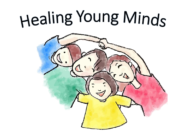ADHD is a common condition that can affect children and adults. It affects people of all ages, races, and lifestyles. ADHD stands for attention-deficit hyperactivity disorder. People with ADHD have trouble focusing on one task at a time or staying still for any length of time. Whether your child has been diagnosed with ADHD or not, you may need to be more patient and understanding than usual while he or she learns how to cope with challenges.
1. Don’t blame yourself.
Don’t blame yourself. It’s natural to feel guilty when you see your child struggling in school and at home, but it’s important to remind yourself that ADHD is a biological condition that cannot be controlled by anyone other than the person who has it. You should never feel like you’re at fault for your child’s ADHD, because there’s nothing more important than supporting your child through difficult times.
2. Get educated about ADHD and its symptoms.
Before you can help your child, it’s important to know what you’re dealing with. ADHD is a real disorder that affects millions of children and adults worldwide. It’s a lifelong condition, not caused by bad parenting or poor diet. In fact, there’s no single cause for ADHD—it occurs when multiple factors interact to disrupt brain development. A common misconception is that lack of exercise or adequate sleep will lead to ADHD symptoms; however, this isn’t true!
3. Be realistic and set expectations for your child.
If you’re struggling with ADHD, you know that it’s not an easy thing to live with. The same can be said for your child, so don’t expect him or her to be perfect—they’re doing the best they can! Don’t expect your child to behave the same way as other children. If your child is getting into trouble in school or on the playground and you’re trying to figure out what’s going on, think about how this might look through their eyes. Maybe they just don’t understand what they did wrong in the first place? Or maybe they don’t know how to communicate their frustration? It could also be that another kid was being mean and they felt like defending themselves. As a parent with ADHD yourself, try taking note of any similar situations where both of these scenarios happened with yourself and other people in your life (friends/family). This will help put things into perspective when dealing with such situations involving children who have ADHD too.
4. Consider your child’s perspective.
Your child’s challenges may be more obvious than your own, so it’s important to try to put yourself in their shoes and understand where they are coming from. If you can do this, it will be easier for you to help them manage their ADHD.
5. Set the stage for success.
As the parent of a child with ADHD, you have to learn how to set the stage for success. Your goal is to help your child achieve his or her potential, and that requires more than just rote memorization. Instead, you should model good habits and encourage them to do their best at all times—this can be as simple as praising them when they complete their homework or clean up their room.
If you notice that your child has trouble staying on task during homework time, try setting up a routine for completing it (such as starting at 5 p.m.). You can also create incentives for completing each task within the allotted time frame; it might mean giving them extra screen time if they finish before 6:30 p.m. or taking away favourite toys if they don’t get everything done by 7:00 p.m.. The point is not so much what incentive works best but rather getting into a regular pattern that doesn’t include procrastination or other bad habits!
Conclusion
Keep in mind that the most important thing to do is to stay positive and focused in the long term. Focus on building up your child’s strengths and supporting them as they learn how to manage their condition. If you’re struggling with ADHD yourself, remember that it doesn’t define you as a person – it’s just part of who you are. You can learn more about managing symptoms by seeking professional help and contacting us here.

